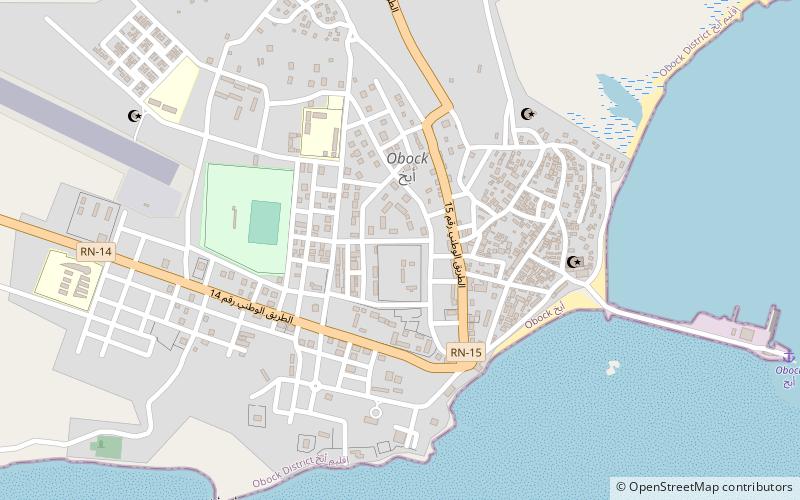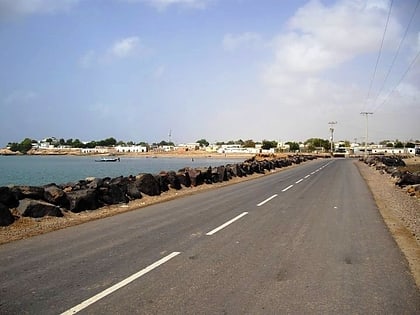Obock


Facts and practical information
Nestled in the Horn of Africa, Djibouti is a country characterized by its rugged landscapes, rich cultural heritage, and strategic location by the Bab el-Mandeb Strait. Within this intriguing nation lies the city of Obock, a port town with historical significance and emerging potential for tourism and trade.
Obock, once the capital of French Somaliland, is a city steeped in history. Its past as a French colony is still visible in the remnants of colonial architecture and the old port, which speak to the city's former glory as a bustling trade center. Visitors interested in the colonial era will find Obock's background particularly fascinating.
Despite its modest size, Obock's location on the Gulf of Tadjoura makes it a prime spot for water activities. The city is gaining recognition as a destination for diving and snorkeling enthusiasts, drawn by the clear waters and the biodiversity of the Red Sea. The nearby Moucha Island, accessible by a short boat ride, offers pristine beaches and an even more secluded environment for underwater exploration.
Obock is also a gateway to the otherworldly landscapes of Djibouti. Adventurers can embark on excursions to the nearby Goda Mountains, part of the Day Forest National Park, which boasts a variety of flora and fauna unique to the region. The park is a haven for hikers and nature lovers, providing a stark contrast to the arid surroundings of the city.
For those interested in cultural experiences, Obock offers insight into the Afar community, an ethnic group with distinct traditions and customs. Visitors have the opportunity to engage with local communities, learn about their way of life, and witness traditional dances and music performances.
Although Obock is not as developed as Djibouti's capital city, it is gradually making its mark on the map for its untapped tourism potential. Efforts to improve infrastructure and facilities are underway, aiming to attract more visitors to this hidden gem.
Region: Obock
